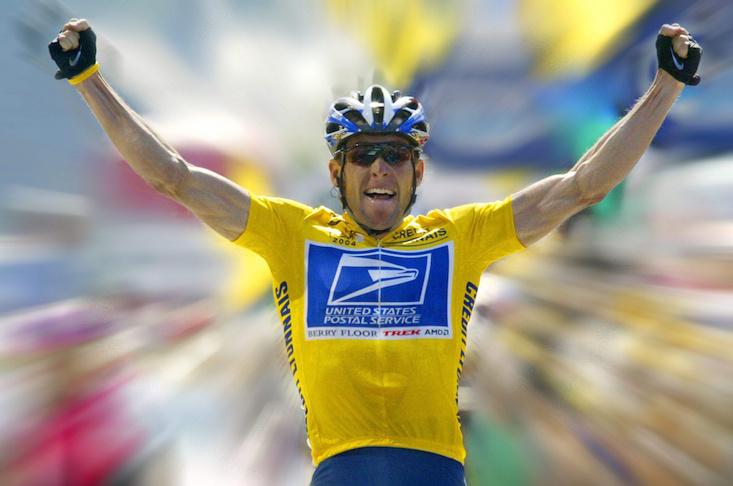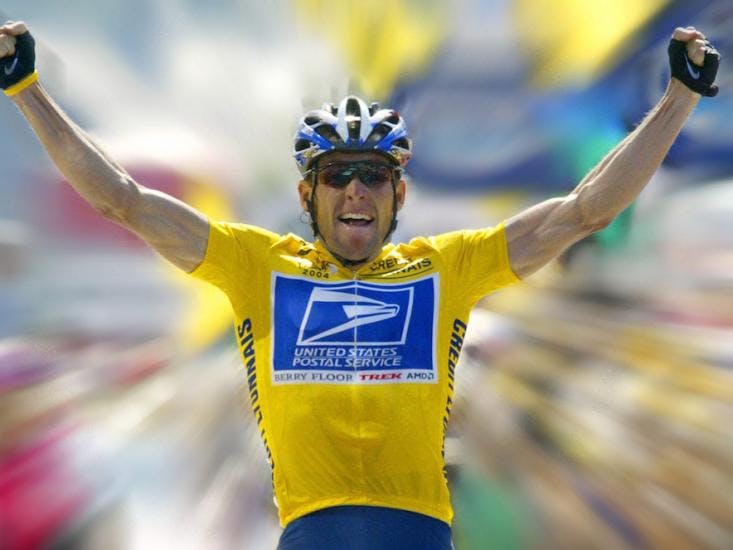To almost all sports fans, doping in sports is an issue of near-religious importance, says Julian Savulescu. According to the Australian bioethicist and moral philosopher, fans celebrate people of extraordinary physical ability who dedicate themselves to training to perform an athletic feat to perfection—but when they augment their abilities with drugs and enhancers, fans can feel personally wronged as if a crime has been committed against them. Just look at what happened to Lance Armstrong.

Time to wake up and smell the steroids, he says. As director of the Uehrin Centre for Practical Ethics at the University of Oxford, Savulescu has garnered quite the reputation for his controversial views on subjects ranging from cloning to the end of the world, as this previous interview in Nautilus details—and sports are no exception. On his radar since 2000, Savulescu has come to the conclusion that doping shouldn’t be a moral question at all—in fact, he’s for it. He spoke to Nautilus about why Lance Armstrong was right to use doping and why we are living in a “fairyland” if we think it isn’t going on—even if testing doesn’t catch it.
You have suggested that you don’t have a fundamental issue with doping, you think that should be allowed in a number of sports?
Sport is interesting because people take sport more seriously than religion. Sport is the last bastion of our nature as human animals. It’s a combat between human animals displaying their genetic fitness. And people don’t like cheating because it goes against everything that we needed as animals, that was an accurate display of people’s genetic potential. That’s why you want to find out who is naturally the fastest runner in the world, not the person who can run the fastest with the assistance of technology, but who was just born with the best genes. So in fact, it’s profoundly just what the Nazis would’ve admired—the strongest, the fittest, the most beautiful. It appeals to that deep animal instinct. I think that the issue of doping in sport is a sort of test case for the case of human enhancement, of moving beyond this evolutionary historical approach to our selves and our world.
But then doesn’t that become a competition between the best chemists, rather than the best athletes?
Well, it might, of course. If you were able to amputate people’s limbs and give them bionic limbs like the Six Million Dollar Man—I think it was a program in the ’70s—and these limbs enabled people to run 100 meters in two seconds, it would just be a matter of who produced the best bionic limbs.
You have to imagine that some athlete in the future who has artificial limbs will be the fastest, because scientists will be able to develop artificial legs that can run faster than natural limbs.
Well, already I think they have to place many constraints on the development of blade technology to prevent that sort of thing happening! So I would think that very soon you’d be able to have blades which enable people to run faster than Usain Bolt. So that’s a real issue—for that reason you then have to ask what contribution is coming from the athlete and what contribution is coming from the technology. There are cases where the technology will dominate, but the sorts of doping that athletes currently employ do not dominate the performance. Six out of 10 people who have run under 9.89 seconds in the men’s 100 meters have subsequently been shown to or strongly implicated to be doping. To run under 9.8 seconds you need to be engaging in some form of doping. Now, what is that doping that they take? It’s steroids, it’s one of the growth hormones. What do these substances do? They’re naturally occurring substances that enhance recovery from injury in training. So when you train at that level you will tear your muscles to pieces, you will injure yourself, and if you were to continue to train, to run under 9.8 seconds, which is probably the human limit for 100 meters, you’re going to have to augment the physiology that you have. All that they are doing is enhancing what is already natural, rather than a bionic limb which is replacing what is natural physiology. The challenge of training and the mental challenge of the sport is the same.
Can you give an example of this happening in practice?
So if you look at the Tour de France, the cycling, people think today, after Lance Armstrong, it’s clean. It’s not clean! What’s happened is they’ve introduced a biological passport that looks at the pattern of your red blood cell values, one of the forms of doping that Armstrong was involved in. It checks whether that moves in a natural way, but it doesn’t tell you whether the person’s baseline was doped. If you take small doses of EPO, a hormone which increases red cells, or small amounts of blood doping, it won’t be picked up on the current test. But this is safe, it enables people to perform better and it’s no different in principle to altitude training or machines or chambers that people can go in to lower the concentration in the oxygen in the air, to increase their own red blood cells.
Why do you think that’s okay? Yes, we have a hard time detecting the people who are cheating now, but why not say it’s wrong? Can’t we just have everyone compete on a level playing field and see who rises to the top?
There’s nothing wrong with that. But there’s nothing wrong with everyone competing with a red blood cell count 1 or 2 percent higher than it would’ve been if they weren’t doping.
There is something wrong if some people do it and others don’t, because those who don’t are at a distinct disadvantage.
That’s exactly the point. So what the current system does is enable that, because it places constraints that are impossible to enforce. So as I said, you can’t pick up small levels of EPO, you can’t pick up small levels of growth hormone, but you can pick up large levels. So if you moved to a system which said, okay, we’re going to allow you to use low levels of these things, but if you get to the point where your testosterone ratios are clearly abnormal then we’re going to eliminate you. That’s a low dose physiological doping regime, rather than a zero tolerance. There’s nothing wrong inherently with allowing people to increase their red blood cell count, just as there’s nothing wrong with allowing them to increase the glucose in their blood or the level of hydration that they have. These are all affecting natural physiology by using our knowledge of science. The point that I’m trying to make is there’s nothing wrong necessarily with doping. It can be wrong if it robs the sport of a significant human contribution, it can be wrong if it’s very exaggerated and dangerous to health, but Lance Armstrong, fit as a trout. You know, he had cancer! But I think there is a question about whether doping can increase the risk of cancer; I think that’s an interesting question. But it’s a scientific question, it’s not a question about the morality of enhancing performance that goes against nature, that finding who happened to be born with the most freakish biology of any human being.
Are fans deluding themselves by trusting in doping tests as a means of ensuring fairness in sports?
We have this saying in Australia—I think what I want to coin at some point is this Australian version of ethics. It’s “no bull,” or “no bull dust” actually is the sort of correct way of putting it. It’s just cutting through all the crap, and then what are the real issues, what should we think, be honest, don’t be a hypocrite, come to a fair decision, give everyone a fair go; that’s another Australian saying. And then get on with it and do it. I think there’s just so much crap in modern life, and I think that we need to be more honest about the way the world is. Doping is a great example, where I don’t know how people continue on in the fairyland, believing all sorts of myths and lies. But again, it’s the market in doping; it’s really because there’s such money involved. There’s Nike, Coca-Cola, all the sponsors, they don’t want a big scandal, the athletes don’t want a big scandal, and the sporting regulatory bodies don’t want a big scandal. It’s only WADA who wants the scandal because it’s on a kind of puritanical quasi religious crusade. But all these vested commercial interests, these sort of capitalist interests, are really what’s driving it, and of course it’s going on. And you’re dreaming if you think it’s not. I think we should start off with the point of being honest.
Steve Paulson is the executive producer of Wisconsin Public Radio’s nationally syndicated show To the Best of Our Knowledge. He’s the author of Atoms and Eden: Conversations on Religion and Science. You can subscribe to TTBOOK’s podcast here.



